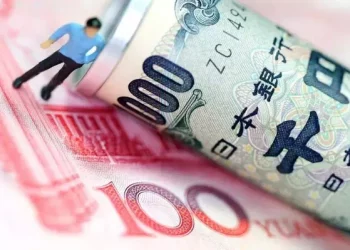The Federal Reserve’s interest rate hike is a significant event that affects various aspects of the economy, and it invariably impacts the average consumer’s financial landscape. It’s crucial to comprehend what this hike means and how it can influence your money, investments, loans, and overall financial decisions.
What is a Fed Interest Rate Hike?
A Federal Reserve interest rate hike is when the Federal Reserve, the central bank of the United States, raises the federal funds rate. This rate is the interest financial institutions charge one another for overnight loans. The Federal Reserve uses this tool to regulate the economy. When the economy is doing well or showing signs of overheating, the Fed may hike interest rates to curb excessive borrowing and spending, which could lead to inflation.
What Does a Fed Rate Hike Do?
A Fed rate hike is a monetary policy tool used to slow down economic growth. By raising interest rates, borrowing becomes more expensive, which subsequently reduces spending by both consumers and businesses. It affects various sectors such as housing, auto loans, credit cards, and savings accounts. Higher rates lead to increased borrowing costs, impacting both existing and new loans.
What Do Fed Interest Rates Mean?
Federal interest rates are benchmarks used to determine rates at which banks lend money to each other and influence rates across the financial landscape. Any changes in these rates set by the Fed can have a domino effect on various other interest rates. This includes mortgage rates, which tend to rise following a Fed rate hike, impacting the cost of buying or refinancing a home.
What Does the Interest Rate Increase Mean?
An interest rate increase signifies that the cost of borrowing money will likely rise. For individuals, this translates to higher costs on variable-rate loans, including credit cards and adjustable-rate mortgages. For savers, it can mean better returns on savings accounts, CDs, and other interest-bearing investments, but often these increases might not match the hike in borrowing costs.
Impact on Investments
A Fed rate hike can have a substantial impact on investment markets. Stock prices may experience increased volatility, with certain sectors, such as utilities and real estate, being particularly sensitive to interest rate changes. Bonds may also experience fluctuation in value, with bond prices generally moving inversely to interest rates.
Impact on Loan Rates
For individuals considering loans, whether it’s for a home, car, or personal use, a Fed rate hike implies higher interest payments. Fixed-rate loans will not be affected immediately but might see changes in the long term. On the other hand, variable-rate loans will experience an immediate increase in interest costs, affecting monthly payments and the total cost of the loan.
What to Do If Interest Rates Rise?
If interest rates rise, there are strategies individuals can employ to minimize the impact on their finances. For instance, refinancing existing loans at a fixed rate can protect against further rate hikes.
Locking in fixed-rate loans before rates increase further can also be a prudent move. Moreover, paying down high-interest debt and making timely payments becomes crucial to avoid increased interest costs.
Managing Investments and Savings
When interest rates rise, reevaluating investment portfolios becomes crucial. Diversification, focusing on long-term strategies, and consulting with financial advisors can help mitigate the impact of rate hikes. For savings, consider high-yield savings accounts or short-term CDs that can provide better returns compared to standard savings accounts.
Conclusion
A Federal Reserve interest rate hike carries considerable weight in the financial world and can significantly impact the average consumer’s financial health. It’s imperative to grasp the implications of such hikes and take proactive steps to mitigate adverse effects on personal finances. By staying informed, strategically managing loans, investments, and savings, individuals can navigate the changing financial landscape and make sound financial decisions in the wake of interest rate hikes.
Related Topics:
What Does a Fed Rate Hike Mean for Your Money?
How the Fed Influences Interest Rates Using Its New Tools
What is the FED Prime Rate: A Full Guide
























